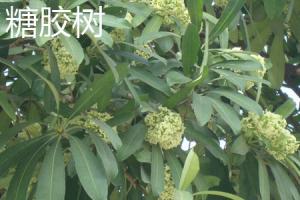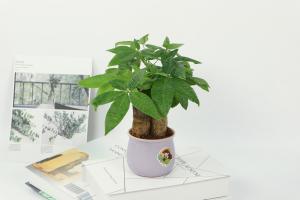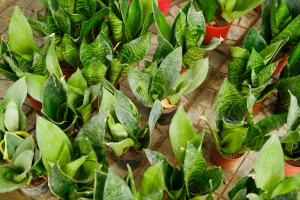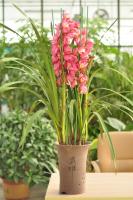Is the Money Tree Plant Toxic to Pets?
The money tree plant, also known as Pachira aquatica, is a popular indoor plant that is believed to bring good luck and prosperity. This plant is known for its braided trunk and shiny, green leaves that resemble a hand. While many people enjoy having this plant in their homes, pet owners may wonder if it is safe to have around their furry friends. In this article, we will explore the question: Is the money tree plant toxic to pets?
What Makes the Money Tree Plant Toxic?
According to the American Society for the Prevention of Cruelty to Animals (ASPCA), the money tree plant is not considered toxic to cats, dogs, or horses. This means that if your pet ingests some parts of the plant, it is unlikely to cause serious harm or death. However, this does not mean that the plant is completely safe for pets.
One potential hazard of the money tree plant is its sap. Like many other houseplants, the money tree plant contains a sap that can cause skin irritation or an upset stomach if ingested. Additionally, some pets may be allergic to the pollen or other components of the plant, which can result in allergic reactions such as itching, swelling, or respiratory distress.
How to Keep Your Pet Safe Around the Money Tree Plant
To ensure your pet's safety around the money tree plant, it is important to take some precautions. Firstly, make sure the plant is placed in a safe location where your pet cannot easily reach it. This can be particularly important if you have a curious cat or a mischievous dog that likes to chew on things. Consider placing the plant on a high shelf, in a secured room, or in a hanging basket to keep it out of reach.
You may also want to monitor your pet's behavior around the plant. If you notice that your pet is showing a lot of interest in the plant or trying to chew on its leaves or bark, you may want to move the plant to a different location or consider using a bitter-tasting spray to deter your pet. It's also important to keep an eye on your pet for any signs of illness, such as vomiting or diarrhea, which could indicate that they have ingested some part of the plant.
Alternative Plants for Pet-Friendly Homes
If you are concerned about the potential hazards of the money tree plant or simply want to add some variety to your indoor garden, there are many pet-friendly houseplants to choose from. Some good options include:
Spider plant (Chlorophytum comosum)
Parlor palm (Chamaedorea elegans)
Prayer plant (Maranta leuconeura)
Boston fern (Nephrolepis exaltata)
These plants are known for their air-purifying properties and can make a beautiful addition to any pet-friendly home. However, it's important to note that even with pet-safe plants, it's still a good idea to keep them out of reach and monitor your pet's behavior around them.
Conclusion
While the money tree plant is not considered toxic to pets, it can still pose some risks. The sap of the plant can cause skin irritation or an upset stomach if ingested, and some pets may have allergic reactions to the plant's pollen or components. To keep your pet safe around the money tree plant or any other houseplant, make sure to choose a safe location for the plant, monitor your pet's behavior, and consider using pet-safe alternatives. With these precautions in place, you can enjoy a beautiful indoor garden while keeping your furry friends healthy and happy.

 how many times do yo...
how many times do yo... how many planted tre...
how many planted tre... how many pine trees ...
how many pine trees ... how many pecan trees...
how many pecan trees... how many plants comp...
how many plants comp... how many plants can ...
how many plants can ... how many plants and ...
how many plants and ... how many pepper plan...
how many pepper plan...






























